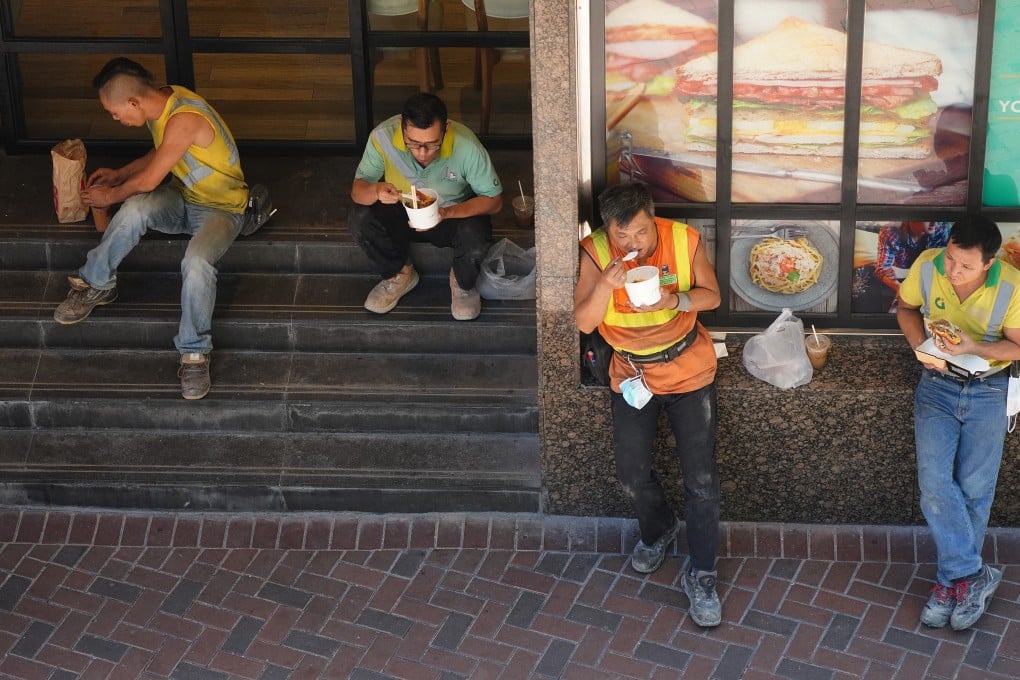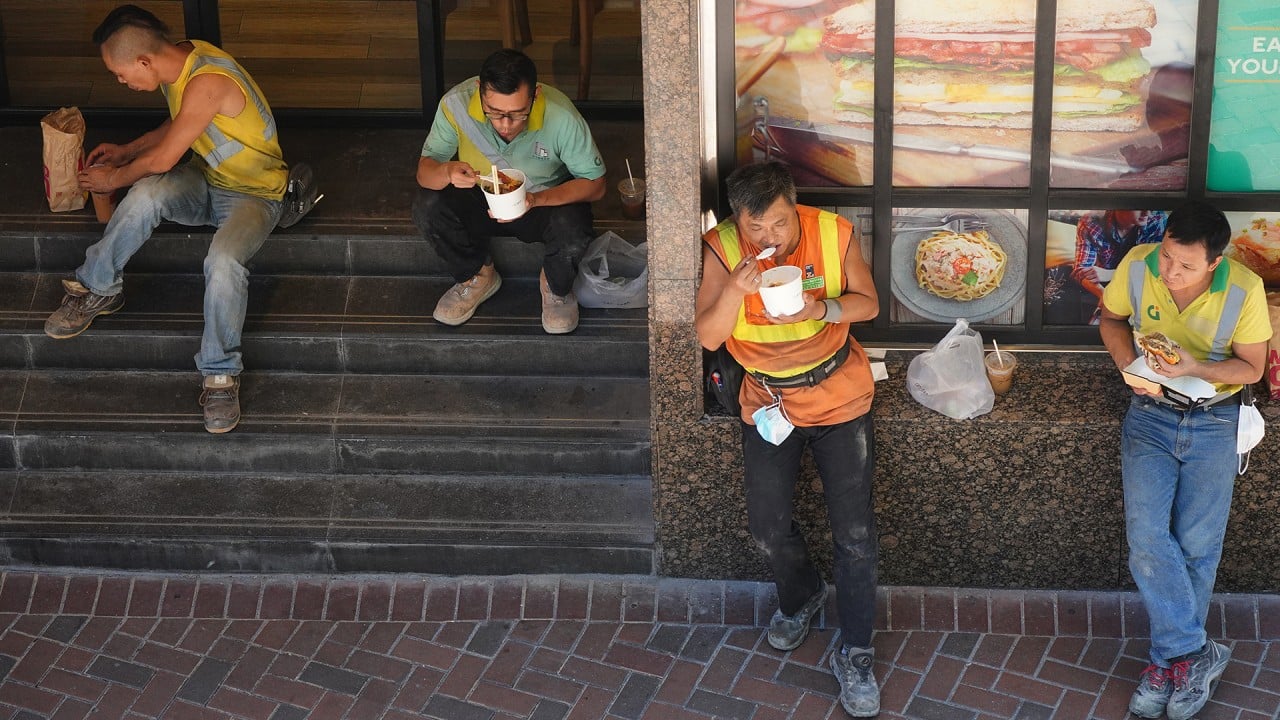Advertisement
Letters | Coronavirus: Hong Kong forgot blue-collar workers long ago, all day dine-in ban was no surprise
Reading Time:2 minutes
Why you can trust SCMP
0

Your report, “No city for eating out: Hong Kong’s low-income workers struggle to find clean spaces to have their meals” (August 15), was a reminder of how the all day dine-in ban last month highlighted a long-ignored issue: low-income workers have few clean spaces to rest or have a meal. Blue-collar workers can be seen eating in parks, beside the street and even next to public toilets and rubbish collection points. Some, such as cleaners, may not have a set place to rest, as their workplaces are mobile.
However, low-income workers lacking adequate places to rest while on duty is not a new phenomenon. The third wave of Covid-19 led the government to ban all dine-in services at eateries. Officials did not think this would pose a problem, as they assumed many people could just work from home. They did not realise those such as cleaners, security guards and construction workers may not have a convenient office to take their meals back to.
Hence, during the brief period of the total ban on dining in, Hongkongers witnessed the tragedy of working-class people taking their lunch outdoors in the sweltering heat or under umbrellas amid a rainstorm. This amplified the truth about their working conditions and garnered greater attention in society.
Unsanitary eating environments leave people open to risk of infection and illness, doubly so in the middle of a virus outbreak. Low-income workers’ lack of places to rest harms their quality of life and could generate resentment towards the rest of society.

04:16
Hong Kong reverses all-day restaurant ban, as city reports record high 149 Covid-19 cases
Hong Kong reverses all-day restaurant ban, as city reports record high 149 Covid-19 cases
Moreover, Hong Kong’s unfriendly urban design limits land available for free public spaces, seating and shelters for people to rest in every community, which adds to the problem. Those who cannot afford to eat at restaurants or shopping malls are left out.
Advertisement